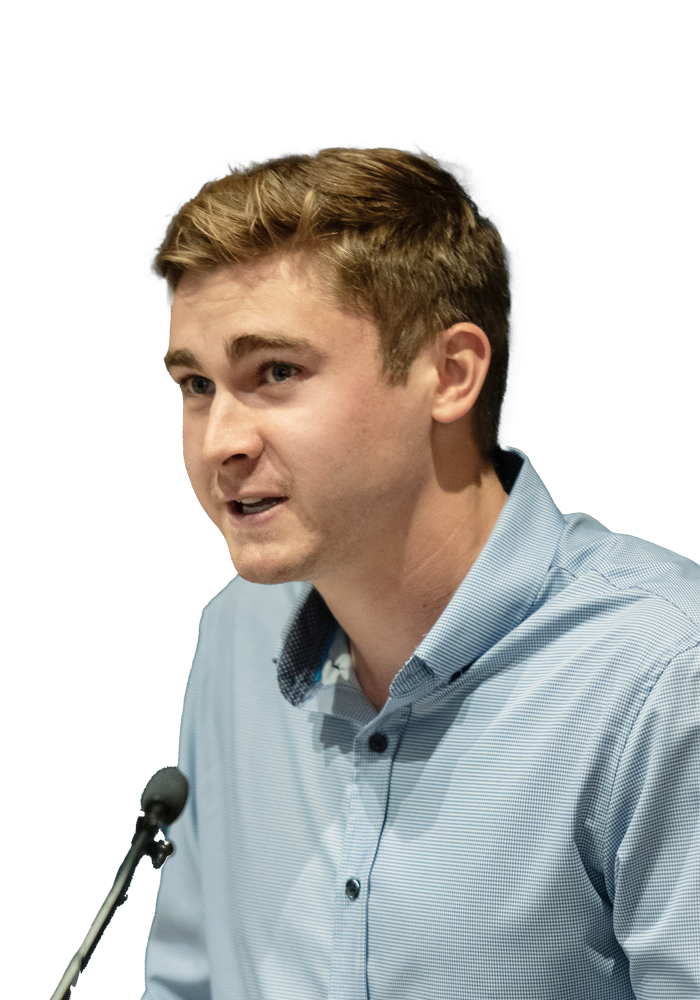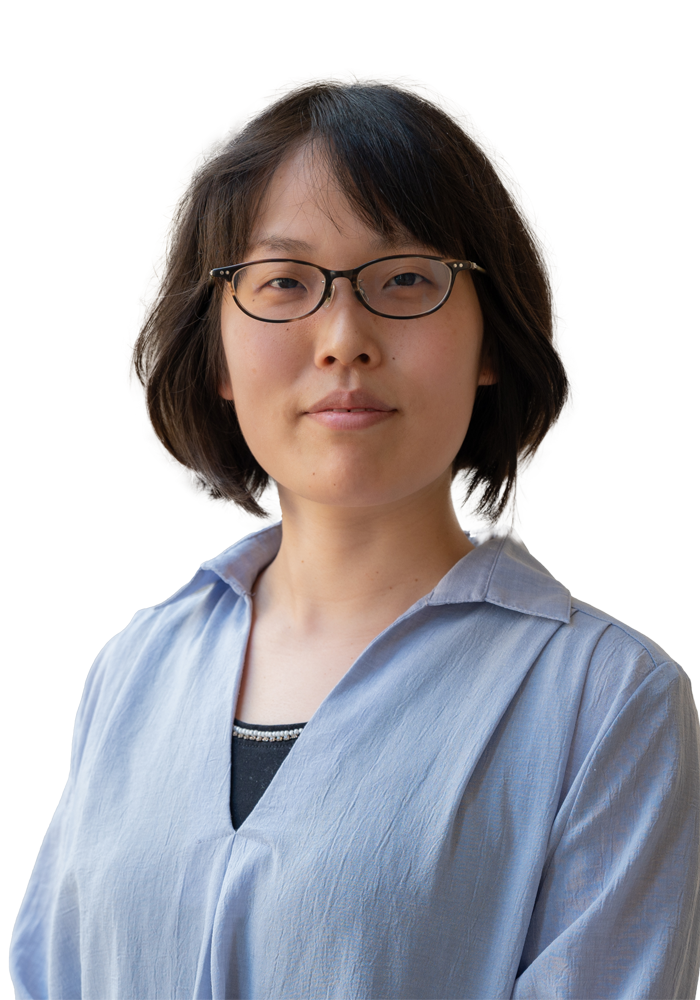Student Stories
Chemistry students receive graduate student funding awards
Created by Glen de Vries Dean Rebecca W. Doerge to help graduate students attend conferences and workshops that will further their research, she and associate dean for faculty graduate affairs Manfred Paulini announced the first recipients since 2020 for the 2022-2023 school year.
The award offers students up to $500 in supplemental funding for travel, prioritizing applicants who have secured other sources of funding.
■ Kirsten Heuring
Winners include the following Ph.D. candidates in chemistry and the meetings they attended:
- Isha Dhami — the 18th Annual Meeting of the Oligonucleotide Therapeutics Society
- Hannah Frame — ACS Northeast Regional Meeting
- Eugene Gutkin — ACS Fall 2022 Conference
- Manami Kawakami — U.S. Japan Organic- Inorganic Hybrid Materials Meeting
- Tong Liu — 242nd ECS Meeting
- Shan Xue — Metals in Biology (Gordon Research Conference)
Senior honored for academics and athletics
Chemistry senior Mason Shockley, a member of the soccer team with a 4.0 GPA who was selected to the prestigious Phi Beta Kappa honorary society, was one of this year’s speakers. He said soccer lifted him up academically.
“My college experience wouldn’t have been the same without soccer,” said Shockley, who was named to the College Sports Communicators Academic All-District team. “When I was struggling in class, soccer was a safe place to go. Doing something you love helps you excel in the classroom. I’m thankful for all the amazing memories and life lessons I learned as a student-athlete.”
■ Bruce Gerson
Kawakami receives Kwolek Fellowship
Kawakami’s research involves designing new organic electronic materials, building up structures into either long chains or into large ring systems. She has created novel structures based on thiophene and furan building blocks, compounds that can be found in pharmaceuticals or roasted coffee beans.
“The organic materials we make are derived from inexpensive building blocks, and the materials themselves can easily be used to cover surfaces as a thin electroactive film,” Kawakami said. “We believe they could be good sensors due to their fluorescence, as they emit strongly under the appropriate conditions.”
Kawakami has spent a large amount of time in her Ph.D. developing new methods to make materials, and through this method development, has constructed unknown molecules and materials.
Kevin Noonan, associate professor of chemistry, who leads the Noonan Group that Kawakami is a member of, said that her work is really at the forefront of conjugated polymer and macrocycle synthesis.
“Building complicated structures using simple chemistry is always challenging,” Noonan said. “Manami’s work shows how to build elegant new structures taking advantage of simple design rules.”
Besides her personal research, Kawakami collaborates with other labs in the Department of Chemistry, helping with their polymer synthesis as well.
“Manami is persistent, thoughtful and meticulous as a researcher,” Noonan said. “Some of the work she carried out required extreme care, and I was always incredibly impressed with her planning and effort. She is also highly creative and collaborative.”
The Noonan Group collaborates with the Bernhard, Kowalewski and Peteanu groups on helical polyfurans, a type of polymer that can be made chiral and folds like biological macromolecules.
“She has been the driving force behind those projects succeeding,” said Noonan, who added that Kawakami has co-authored papers with all these groups.
Along with connecting with other labs, Kawakami mentors a junior graduate student and an undergraduate student in the Noonan Group.
“They’re good students,” Kawakami said. “When they learn something from me, like techniques, and use them, they’re excited that’s working. I’m very happy about that.”
Kawakami plans on using the fellowship to focus more on her research. After her graduation, she hopes to move into industry, continuing her work developing novel polymers.
Created by chemistry alumna Stephanie Kwolek, who invented Kevlar, the Kwolek Fellowship provides partial funding for an academic year to support a female chemistry graduate student’s research and academic expenses.
■ Kirsten Heuring


